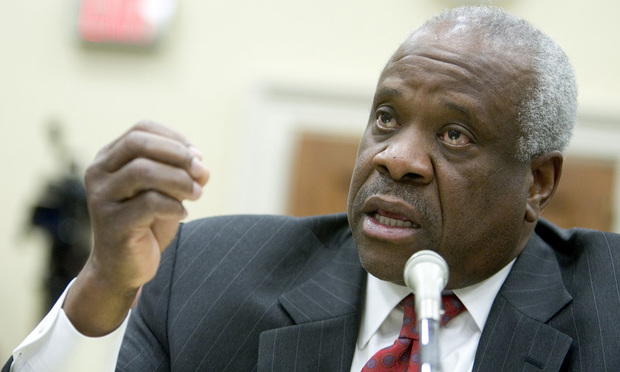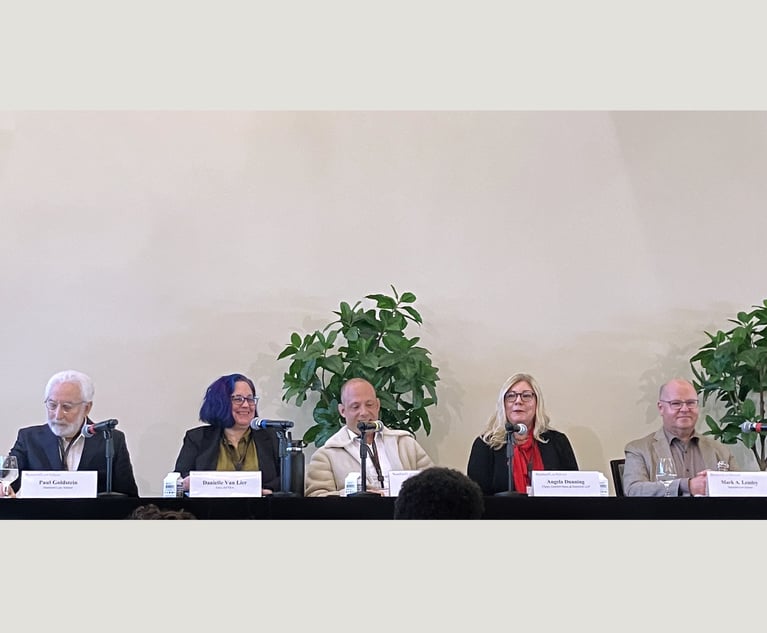➤➤ Want IP news that goes deeper? Geek out with Scott Graham’s email briefing, Skilled in the Art. Sign up now.
Thomas sidestepped the presumption against extraterritoriality, saying that to decide whether it applied to Section 271(f)(2) could disrupt too many other kinds of cases. Instead, under the court’s RJR Nabisco framework for examining extraterritoriality, he focused on the domestic nature of the patent infringement at issue. “The conduct that Section 271(f)(2) regulates—i.e., its focus—is the domestic act of ‘suppl[ying] in or from the United States,” he wrote. Therefore, damages are appropriate under Section 284, the Patent Act’s damages provision.
Justice Neil Gorsuch dissented, saying no damages should be awarded for extraterritorial activity. “A U.S. patent provides a lawful monopoly over the manufacture, use, and sale of an invention within this country only,” he wrote.
Awarding damages for overseas conduct “would invite other countries to use their own patent laws and courts to assert control over our economy,” wrote Gorsuch, who was joined by Justice Stephen Breyer. “Nothing in the terms of the Patent Act supports that result and much militates against it.”
The ruling will likely lead to the reinstatement of a $93 million lost profits award for Schlumberger subsidiary WesternGeco in a dispute over mapping technology for oil deposits under the ocean floor.
WesternGeco patented methods for steering the sometimes milelong cables that scan for oil and gas deposits beneath the seabed. The company says it invested a decade of research and nearly $100 million to develop the process of “lateral steering” and held 100 percent of the market during the early 2000s. Houston-based ION manufactures a similar system that is assembled overseas then sold to WesternGeco’s competitors. A Houston federal jury found that WesternGeco lost at least 10 contracts worth $6 million to $45 million each to ION-supplied competitors.
U.S. patent laws generally limit liability to making, using or selling a patented invention in the United States. The U.S. Court of Appeals for the Federal Circuit upheld the infringement finding and $22 million in royalties under Section 271(f). But the appellate court threw out the additional $93.4 million for lost profits, on the ground that those damages occurred beyond the United States.
Kirkland & Ellis partner Paul Clement had the winning argument for WesternGeco. Kirkland partner Gregg LoCascio noted that the firm has been litigating the case for nearly 10 years. “We are pleased that the Supreme Court recognized that the Patent Act affords WesternGeco and other innovators full protection against infringers who would try to skirt U.S. patent law by exporting components of a patented system for assembly abroad.”
Williams & Connolly partner Kannon Shanmugam argued for Ion, while Zachary Tripp of the Solicitor General’s Office argued for the U.S. government as amicus curiae.
Although Thomas’ opinion was limited to Section 271(f)(2), some practitioners and scholars suggested it could lead to claims for overseas damages based on more traditional U.S. patent law provisions.
Kilpatrick Townsend & Stockton partner Matthew Holohan said he expects patent owners to use WesternGeco as the basis for “creative arguments for more expansive international damages.” As with a lot of Supreme Court patent opinions, it will play out over a few years and is hard to predict sitting here today.”
Ropes & Gray counsel Matthew Rizzolo said that since Section 284 applies to all forms of patent infringement “you could make the argument that the reasoning—not the holding—applies to other forms of patent infringement.” His Ropes colleague Rebecca Carrizosa said the issue is likely to recur “as companies and supply chains become more international.”
Emory University law professor Timothy Holbrook, who’s written extensively on the presumption against extraterritoriality, thinks the court limited the reach of the decision by emphasizing the “shipping overseas” nature of infringement in Section 271(f)(2). Plus, the court declined the solicitor general’s suggestion that it overrule two Federal Circuit decisions that frowned on extraterritorial damages under the more general 271(a) infringement statute.
Aside from patent law, Holbrook thought it noteworthy that the court for the first time has applied the RJR Nabisco framework to remedial provisions, rather than just liability.
University of Denver law professor Bernard Chao, who’s also written on the subject, said he was disappointed in the decision, and that it represents to him “patent imperialism.”
“If other countries adopted the same kind of worldwide damages scheme,” he said, “the United States would get mad.”
Read the decision:


 Justice Clarence Thomas, U.S. Supreme Court (Photo: Diego M. Radzinschi/ ALM)
Justice Clarence Thomas, U.S. Supreme Court (Photo: Diego M. Radzinschi/ ALM)





